

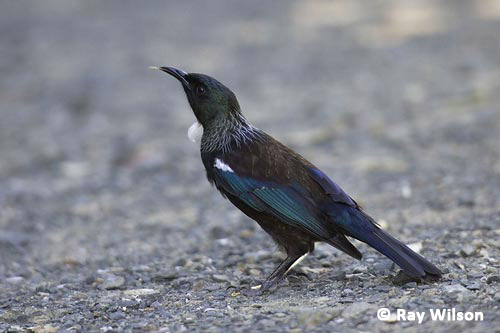
The Tui's diet mainly consists of nectar, which it collects from flowers using it's long tongue. During breeding season and whenever there is a shortage of nectar-producing flowers they supplement their diet with insects and fruit.
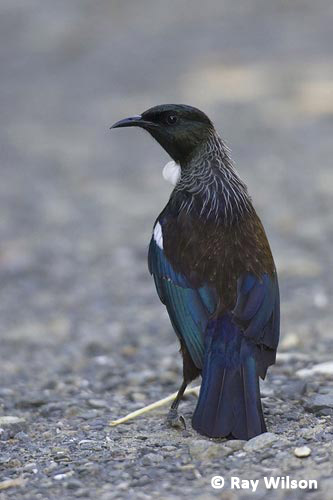 |
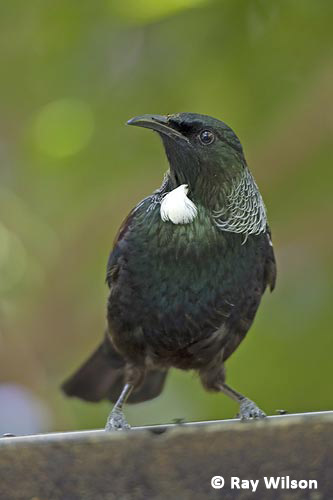 |
They are highly territorial and spend a large amount of time noisily chasing rivals off their territories. In flight, the characteristic loud fluttering noise, which is often your first clue that a Tui is in the area, is caused by a notch in the 8th primary creating turbulence around the wingtip.
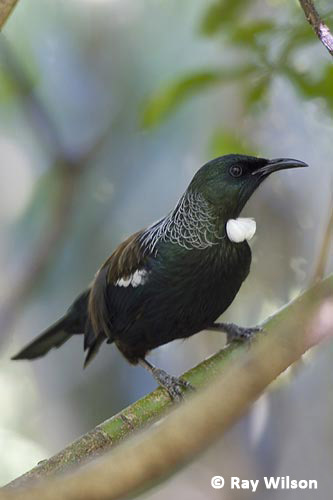 |
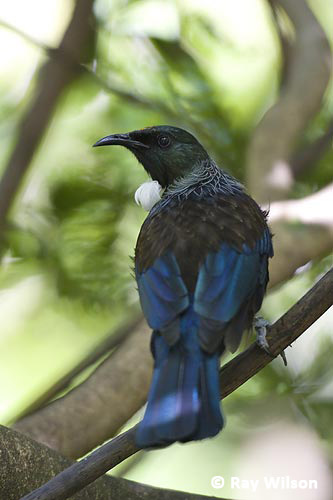 |
The yellow patch often seen on the foreheads of Tuis and Bellbirds is not a plumage feature. It is, in fact, pollen staining. Both Tui and Bellbird are important pollinators for many of New Zealand's native flowering trees and shrubs.
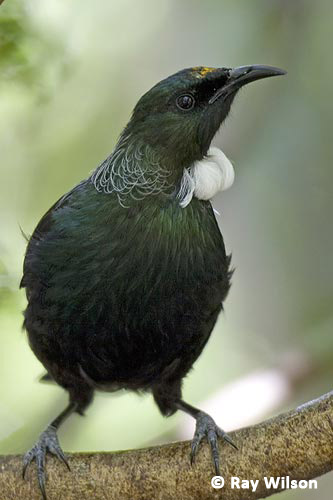
Ray Wilson owns the copyright of all images on this site.
They may not be used or copied in any form without prior written permission.
raywilsonphotography@googlemail.com